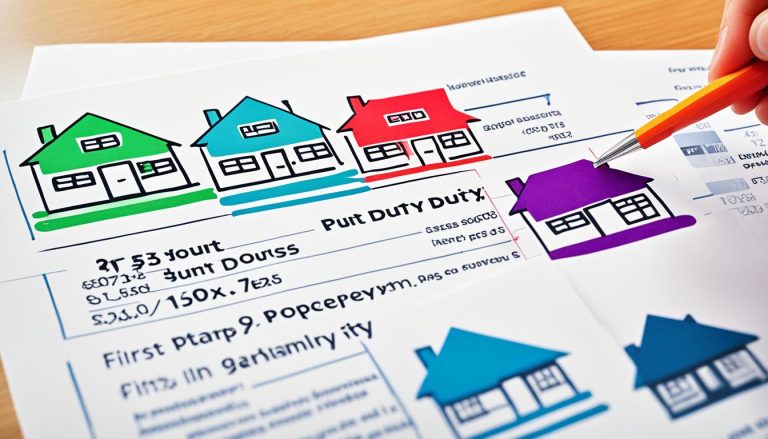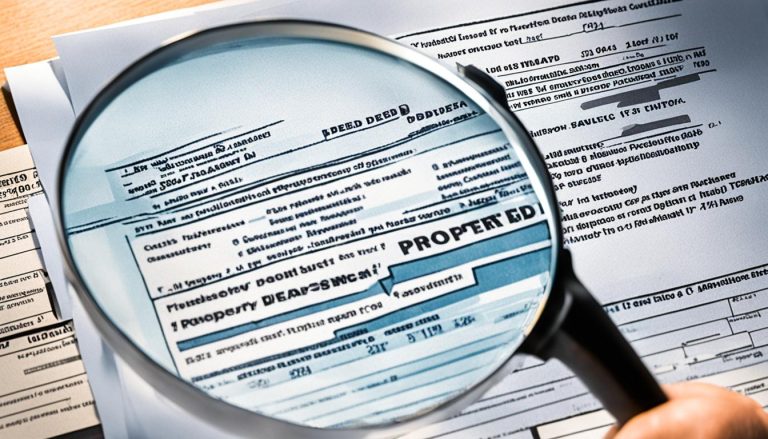Separation can be an emotionally charged time, bringing uncertainty and questions about the future. One of the most pressing concerns for many is understanding their rights to property after separation in the UK. Whether you’re living together as a couple or have recently split from your spouse, navigating property ownership can feel overwhelming. This blog post will unravel complex legal terms and shed light on what actually happens to your assets when relationships change. Get ready to explore everything from joint tenancy versus tenancy in common to how courts handle asset division during divorce proceedings. Knowing your rights is crucial—let’s dive into this important topic!
Understanding Different Types of Property Ownership
When navigating property ownership, it’s essential to understand the differences between joint tenancy and tenancy in common.
Joint tenancy means that two or more people own a property together with equal rights. If one owner passes away, their share automatically transfers to the surviving owners through a right of survivorship. This setup is straightforward but can lead to complications if not everyone agrees on future decisions.
On the other hand, tenancy in common allows for more flexibility. Each owner can hold different shares of the property—perhaps one owns 70% while another holds 30%. In this arrangement, if an owner dies, their share doesn’t automatically go to the others; it becomes part of their estate and can be inherited by someone else.
Understanding these distinctions is crucial when considering your rights during separation or divorce proceedings.
What Are My Rights to Property After Separation UK?

After separation in the UK, determining your rights to property can be complex. Your legal entitlements largely depend on several factors, including whether you are married or cohabiting.
For married couples, the law presumes that assets acquired during the marriage belong to both parties. This includes properties and savings accumulated together. Even if one partner’s name is on the title deed, the other may still have a claim.
Cohabiting couples face different challenges. If you’re not married, your rights aren’t as clear-cut. You might need to establish your contribution to any shared assets or consider agreements made before separation.
It’s essential to gather all relevant documents regarding ownership and contributions when navigating these waters. Seeking professional advice can clarify how laws apply specifically in your situation and help protect your interests moving forward.
What Are My Rights to Property After Separation Not Married UK?
When it comes to rights to property after separation for unmarried couples in the UK, the situation can be complex. Unlike married couples, cohabiting partners do not have automatic rights to each other’s property.
Ownership is primarily determined by whose name is on the title deeds or mortgage. If both names are listed, shared ownership may apply, and you could argue for a division based on contributions made during your relationship.
However, if only one partner’s name appears on the documents, that individual typically retains full control over that asset. This can lead to disputes when separating.
It’s essential to gather evidence of any financial contributions made towards shared assets. Keeping records of payments related to maintenance or improvements can strengthen your position in negotiations or legal discussions down the line. Seeking legal advice early can help clarify your specific circumstances and options available under current laws.
How to Determine Ownership of Property During a Separation?

Determining ownership of property during a separation can be complex. First, review any legal documents associated with the property. This includes deeds, title documents, and mortgage agreements.
Next, identify how the property was acquired. Was it purchased together or individually? The answer often influences ownership rights significantly.
Consider the nature of your relationship as well. If you lived together in a cohabitation context without formal marriage, different rules may apply compared to married couples.
Take time to list all assets involved. Include real estate, vehicles, and personal belongings. Clarity on what exists will help navigate discussions about who retains what.
Seek professional advice if needed. A family lawyer can clarify rights under UK law and provide tailored guidance based on your situation.
Keep communication open but focused on facts rather than emotions; this may lead to an amicable resolution regarding ownership disputes.
Rights to the Family Home During Separation and Divorce Proceedings
When a couple separates, the family home often becomes a focal point of contention. This is especially true during divorce proceedings where emotions can run high.
In the UK, both parties typically have rights to reside in the family home until an agreement is reached or a court order is made. This means that even if one partner’s name isn’t on the mortgage or deed, they might still be entitled to stay put.
If children are involved, courts usually prioritize their welfare when deciding who remains in the house. Stability for kids often takes precedence over other factors.
It’s essential to understand that ownership type plays a significant role here. Whether it’s joint tenancy or tenancy in common influences how assets and property rights are handled after separation. Engaging with legal advice early can help clarify individual rights regarding the family home during this challenging time.
How Assets Are Divided in a Divorce Settlement?

Dividing assets in a divorce can be complex. It often depends on various factors, including the length of the marriage and each partner’s financial contributions.
The starting point is usually to identify all marital assets. This includes property, savings, investments, and pensions acquired during the relationship.
Courts aim for a fair distribution rather than an equal split. Factors like individual needs and future earning potential play significant roles in this decision-making process.
For instance, if one spouse has been the primary caregiver for children, they may receive a larger share to facilitate stability.
Debts are also considered alongside assets. The total value of both must be accounted for when determining what each party receives.
Understanding these nuances helps individuals navigate their rights to property after separation UK effectively. Seeking legal advice can clarify any uncertainties about asset division during divorce proceedings.
Legal Options for Protecting Your Property Rights
When navigating property rights after separation, understanding your legal options is crucial.
One effective approach is to seek a legally binding agreement, such as a separation agreement or consent order. These documents clearly outline how assets will be divided and provide protection for both parties.
If you’re facing disputes, consider mediation. This process encourages open communication and can lead to mutually beneficial solutions without the need for court intervention.
In some cases, obtaining an injunction may be necessary. An injunction can prevent one party from selling or transferring property without consent during the separation period.
Additionally, consulting with a solicitor specializing in family law ensures you are well-informed about your rights and obligations regarding property ownership. They can guide you through the complexities of the legal system and help protect your interests effectively.
Important Considerations for Cohabiting Couples

Cohabiting couples often face unique challenges regarding property rights. Unlike married couples, their legal protections can be less clear.
One significant consideration is the lack of automatic inheritance rights. If one partner passes away without a will, the surviving partner may not inherit any property unless it’s jointly owned.
It’s crucial to discuss ownership arrangements early on. Consider whether to hold property as joint tenants or tenants in common, as this affects what happens if the relationship ends.
Financial contributions also play a vital role in determining ownership claims during separation. Documenting expenses related to property maintenance or improvements can strengthen your position.
Drafting cohabitation agreements can clarify expectations and protect each party’s interests before entering into a long-term commitment. Engaging with legal advice ensures that you’re well-informed and prepared for any future disputes over your shared life together.
Common Issues and Disputes Surrounding Property Rights After Separation
Disputes over property rights can arise quickly after separation. Emotions run high, making it difficult to navigate the complexities of ownership.
One common issue is disagreement over what constitutes shared versus individual property. Assets acquired during the relationship often lead to confusion about who has rightful claims.
Another frequent challenge involves valuations of properties or personal belongings. Differing opinions on worth can result in prolonged negotiations and even strained relationships.
In some cases, one partner may attempt to sell or transfer assets without consent, leading to legal battles that complicate the situation further.
Cohabiting couples also face unique hurdles since they lack formal agreements that married couples typically have. This absence leaves many unsure of their entitlements when a relationship ends.
Understanding these disputes is crucial for anyone facing separation as it helps prepare for potential challenges ahead.
Conclusion
Navigating the rights to property after separation in the UK can be complex. Understanding your entitlements and obligations is crucial, whether you’re married or cohabiting. The distinction between joint tenancy and tenancy in common plays a pivotal role in determining ownership rights.
Different rules apply to those who are not married, which may lead to misunderstandings about what you are entitled to claim. It’s essential to know how assets are divided during divorce proceedings and how these decisions impact your financial future.
Legal options exist for protecting your property rights, but they often require careful consideration of individual circumstances. Cohabiting couples must also be aware of their unique challenges regarding property rights after separation.
Common disputes arise from misunderstandings about ownership or unequal contributions made during the relationship. Clear communication and legal advice can help mitigate these issues.
Understanding these elements empowers you to make informed decisions post-separation, ensuring that you protect your interests effectively as you move forward in this new chapter of your life.
FAQ
What are my property rights after separation in the UK?
Your rights depend on whether you are married or cohabiting. Married couples generally have equal rights to assets acquired during the marriage, while cohabiting couples may need to establish contributions to shared assets, as they do not automatically have rights to each other’s property.
Do unmarried couples have property rights after separation?
Unmarried couples do not have automatic rights to each other’s property. Ownership is usually determined by whose name is on the title deeds or mortgage. If only one partner’s name is listed, that individual retains full control over that asset.
How can I determine ownership of property during separation?
To determine ownership, review legal documents related to the property (e.g., deeds and title documents), identify how the property was acquired, and consider the nature of your relationship (married vs. cohabiting). Seeking professional advice can clarify your situation.
What rights do I have to the family home during separation or divorce?
Both parties typically have the right to reside in the family home until an agreement or court order is made. If children are involved, their welfare may influence who remains in the home. Legal advice can help clarify specific rights regarding the family home.
How are assets divided in a divorce settlement in the UK?
Assets acquired during the marriage are identified and evaluated. Courts aim for a fair distribution rather than a strictly equal split, considering factors such as each party’s financial contributions, needs, and future earning potential.
What legal options do I have for protecting my property rights after separation?
Consider seeking a legally binding agreement, such as a separation agreement. Mediation can help resolve disputes amicably, while an injunction may be necessary to prevent one party from selling or transferring property without consent. Consulting a solicitor is also recommended.






